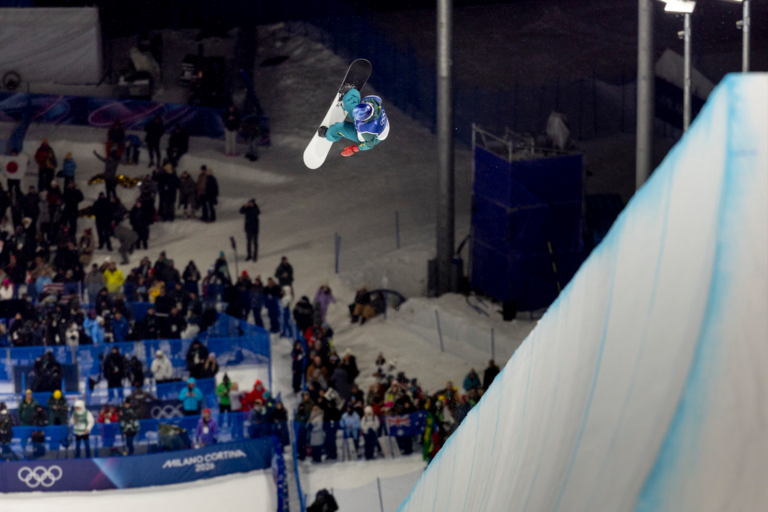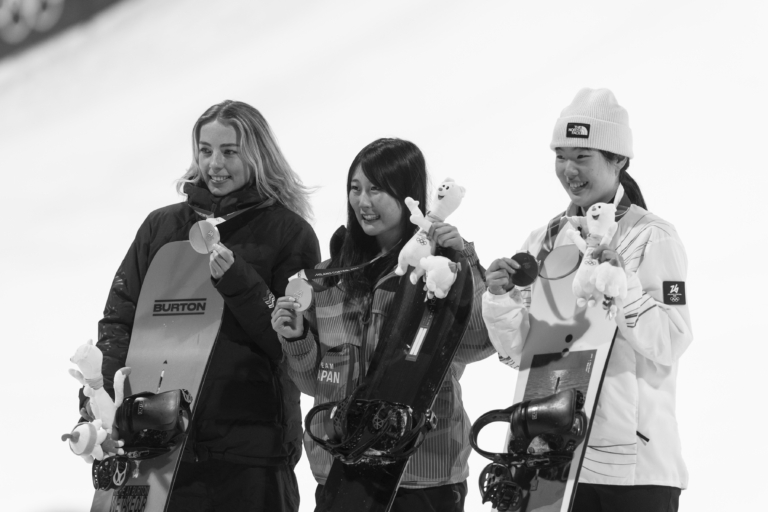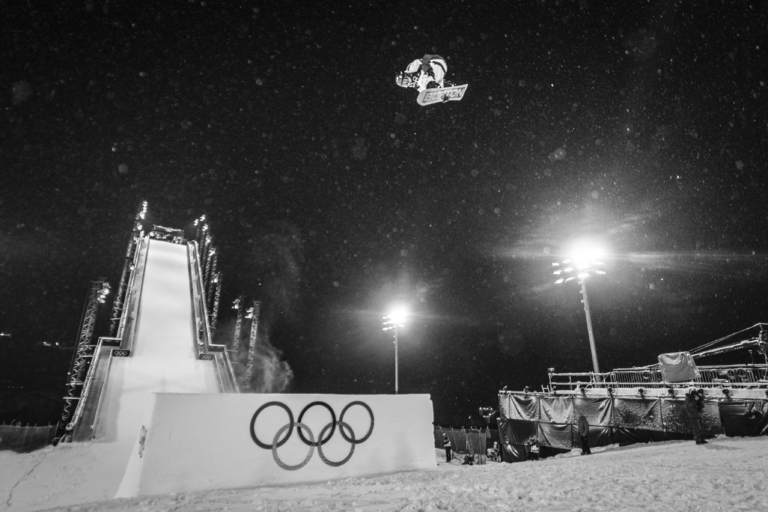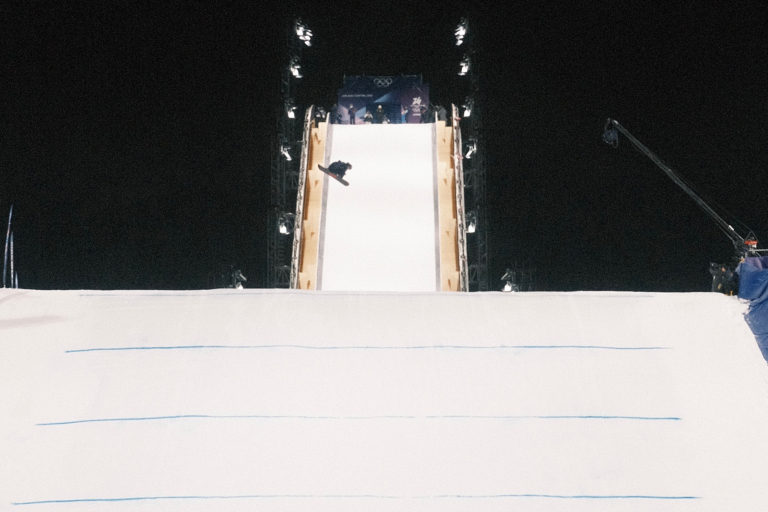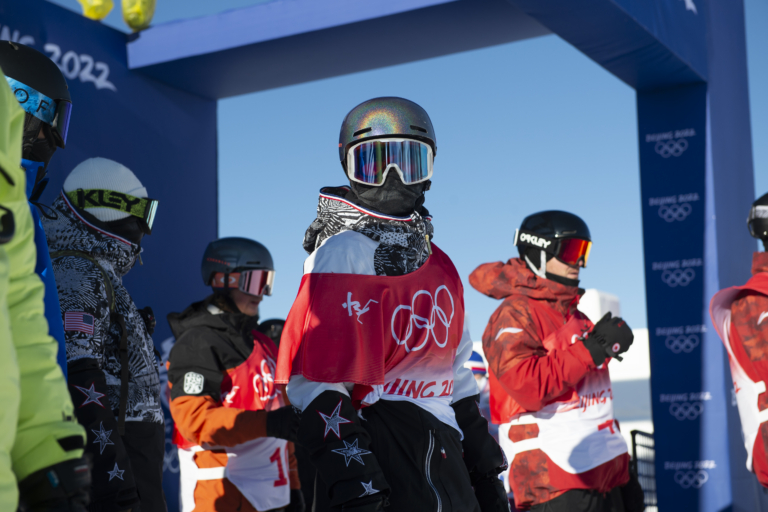
Words: Kimmy Fasani
Originally featured in Snowboard Mag Vol. 10, Issue 4 | The Olympic Issue
I stopped for a quick break about 22 miles into a bike ride and anxiously checked my social media feed for updates. I took my lips off my water bottle, mid sip, and almost screamed. The rumor was true: on July 4th 2011, slopestyle had been added to the roster for the 2014 Winter Olympics in Sochi, Russia. My heart jumped when I read the news, and my mind flashed back to my childhood.
I had dreamt about being an Olympian since I was about 10-years-old. I was a fearless gymnast and loved watching gymnastics at the Olympics. Strong, fierce, focused and inspiring; those ripped bodies – both girls and guys – were so driven, committed and passionate about each event they were doing. Their rollercoaster of energy seemed to burst through the TV every time they perfected a routine. I remember being just as inspired in 1998 when halfpipe debuted at the Nagano, Japan Olympic Games. I was 13-years-old, and my passion for snowboarding had just ignited. I was glued to the TV as this sport, unlike any other in the Olympics, aired. Nicola Thost and Ross Powers ruled with massive airs and unforgettable style. Flip forward fifteen years and now slopestyle, in the heat of its most progressive days, will show the world another taste of what snowboarding is, and it will inspire people around the world to get involved in the sport we all love so much.
When the news hit that slopestyle was officially an event in Sochi, something inside me changed. I realized there was a chance that I could attain that childhood dream of becoming an Olympian. My mind shifted and instead of taking the golden ticket to riding powder for the rest of my career as the Burton [AK] backcountry girl, I wanted to prove to myself that I could be successful at contests. And what better way to display my skills than carving out a spot on the US slopestyle team! My training in the gym doubled, my bike rides lengthened and my primary focus was to become as strong as possible. I started working with a sports psychologist who could help guide my mind to be more durable under pressure. I hired my friend, pro snowboarder Cody Rosenthal, to coach me through the basics. To progress my riding to the level I wanted to display throughout qualifications I had to build up a strong foundation both physically and mentally. I was going to give this my all. It was finally time to fight the battle I so badly wanted to win!
[juicebox gallery_id=”44″]
All this preparation came crashing down on December 11, 2012. With a little too much oomph, I drifted from left to the farthest right corner of a park jump landing, bounced, and was propelled backwards into the trees at full speed. With a dream-shattering impact to my left leg, I painfully realized that sometimes even the most calculated, strong and determined athletes could be blindsided by unfortunate events. The timing of this accident was heartbreaking. A switch back 540 had gone horribly wrong, and I had just ended my season. Even worse, I had taken myself out of contention to qualify for the Olympics. With a torn Anterior Cruciate Ligament, Medial Cruciate Ligament, Posterior Cruciate Ligament (ACL, MCL, PCL) in my knee and a fractured pelvis I was off snow for, at minimum, a year! Letting go of opportunities, goals and dreams I just had to sit back and watch the season unfold from the sidelines. After plenty of downtime and countless hours thinking about what had happened, I slowly came to the realization that I had been preparing all wrong. The Olympics weren’t something to chase every four years. This event deserved thorough and diligent focus over the course of four years or a lifetime. My close friend and halfpipe dominator Kelly Clark’s wise words helped me see what a true Olympian’s mentality should look like. “I never want to make the Olympics a motivator, only progressing because it is what we have to do every four years,” Kelly explained. “I want to be intentional… progress because I want to, not because I have to. This took me a few years to figure out, but moving forward it is a much more enjoyable approach.”
But this story isn’t about me. It’s a reflection of a collective group of incredibly driven, determined and motivated athletes who may or may not have had the same reaction I did when the news was announced. What makes this looming event so prestigious and why does it create a building block of pressure and progression that no other contest generates? What makes the Olympics such a powerful arena for athletes to strive to win not just one, but possibly multiple events?
On the next page: The Olympic Experience

